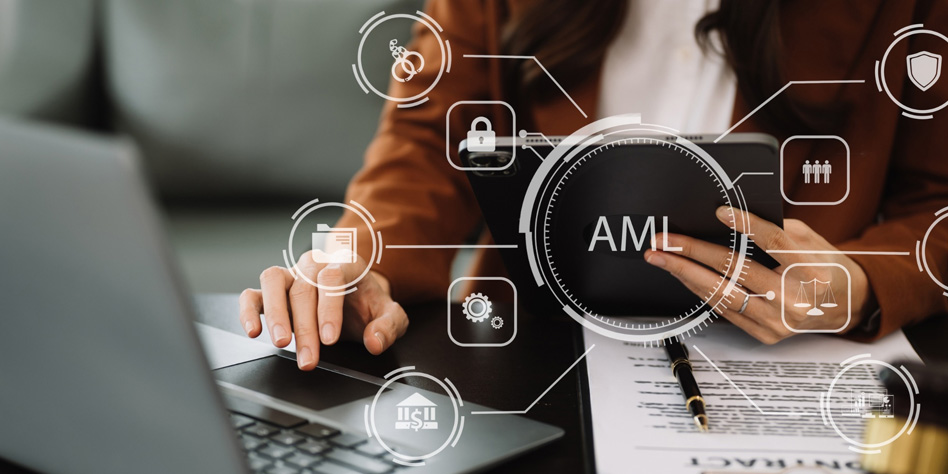
US Senators Elizabeth Warren and Roger Marshall will attempt to pass the Digital Asset Anti-Money Laundering Act through Congress again. Senator Warren disclosed their intent during a Senate Armed Services Committee hearing. She expressed her belief that cryptocurrency is currently the preferred way for countries to avoid sanctions, allowing them to finance their weapon programs, engage in spying, and promote cyber-attacks. Blockworks, however, reports the senators delayed the reintroduction to gather more cosponsors.
What is the bill about?
Senators Warren and Marshall introduced the act in December 2022 at the heels of the FTX collapse. They proposed a law to reduce the risks associated with digital assets, such as cryptocurrencies, to US national security. The law aims to close gaps in the existing anti-money laundering and counter the financing of terrorism frameworks by applying the Bank Secrecy Act’s (BSA) responsibilities to digital asset wallet providers, miners, validators, and other network participants, requiring them to verify their customers' identities and keep records of their transactions to prevent money laundering and terrorist financing.
The law also aims to address the issue of non-custodial digital wallets, which allow individuals to bypass anti-money laundering and sanctions checks, by requiring banks and money service businesses (MSBs) to verify customer and counterparty identities, keep records, and file reports concerning certain digital asset transactions involving self-hosted wallets or wallets hosted in non-compliant jurisdictions.
It would also ban financial institutions from using anonymity-enhancing technologies or dealing with digital assets that have been anonymized using these technologies. Regulatory bodies would ensure compliance through AML/CFT examination and review processes. The law will require people to report if they have a transaction of over $10,000 with digital money from accounts outside the US. It will also make digital ATM owners to keep updated records of their kiosks and check who is using them.
Consequences for wallet providers and their users
If the Digital Asset Anti-Money Laundering Act is passed, non-custodial wallet providers, such as XMRWallet will be required to comply with BSA regulations, including Know-Your-Customer (KYC) requirements. Wallet providers will have to verify customer identities and keep records of transactions. Failure to comply with these regulations could result in penalties and fines.
The act also directs the Financial Crimes Enforcement Network (FinCEN) to finalize and implement its proposed rule requiring banks and money service businesses (MSBs) to verify customer identities and file reports for transactions involving unhosted wallets or wallets hosted in non-BSA compliant jurisdictions. This will make it harder for individuals to use self-hosted wallets to bypass AML and sanctions checks.
This does not bode well for users who use self-custodial wallets legitimately and prefer to keep their privacy in their cryptocurrency transactions. They may not be able to use these wallets without giving their personal information and having their transactions monitored. Even using non-custodial exchanges that work with these wallets may become challenging, as they may have to do extra checks to ensure everything is legal.
Industry reactions
Advocates of the bill believe well-defined rules are crucial to safeguard consumers and prevent illegal activities. Opponents, however, argue the act overreaches. Neeraj K. Agrawal of Coin Center states, “The Digital Asset Anti-Money Laundering Act is an opportunistic, unconstitutional assault on cryptocurrency self-custody, developers, and node operators. Nothing about the bill would prevent the next FTX. In fact, it puts users at more risk.”
Bryan Daugherty from Bitcoin Association opines on the bill classifying self-hosted wallets as money service businesses, “Wallets should only be regulated from the perspective of fiat on and off-ramps, i.e., the exchange into actual government-issued currency. Current laws regarding the source of funds can be utilized along with tracing technologies to eliminate money-laundering, whilst not limiting the access to the underlying technology that self-hosted wallets provide.” News analyst Macauley Peterson compares it to asking Louis Vuitton to register as a money transmitter for providing a leather wallet that can hold cash.
Senators Warren and Marshall seem to view cryptocurrency as a scam and privacy tools as fraud. Law professor Rohan Grey comments, “Making payments anonymously is not inherently criminal. Too many progressives, in their zealousness against truly bad actors, are letting the surveillance state into their minds and their politics. It's really bad. Private greed and bureaucratic surveillance are twin enemies.”
Privacy and anonymity are not inherently corrupt or illegal; they are fundamental to protecting our civil liberties. A technology can be misused, but it does not mean it should be censured entirely. We can only hope US lawmakers will examine the bill's impact on crypto users. The law must balance the need to protect consumers and their right to privacy.
